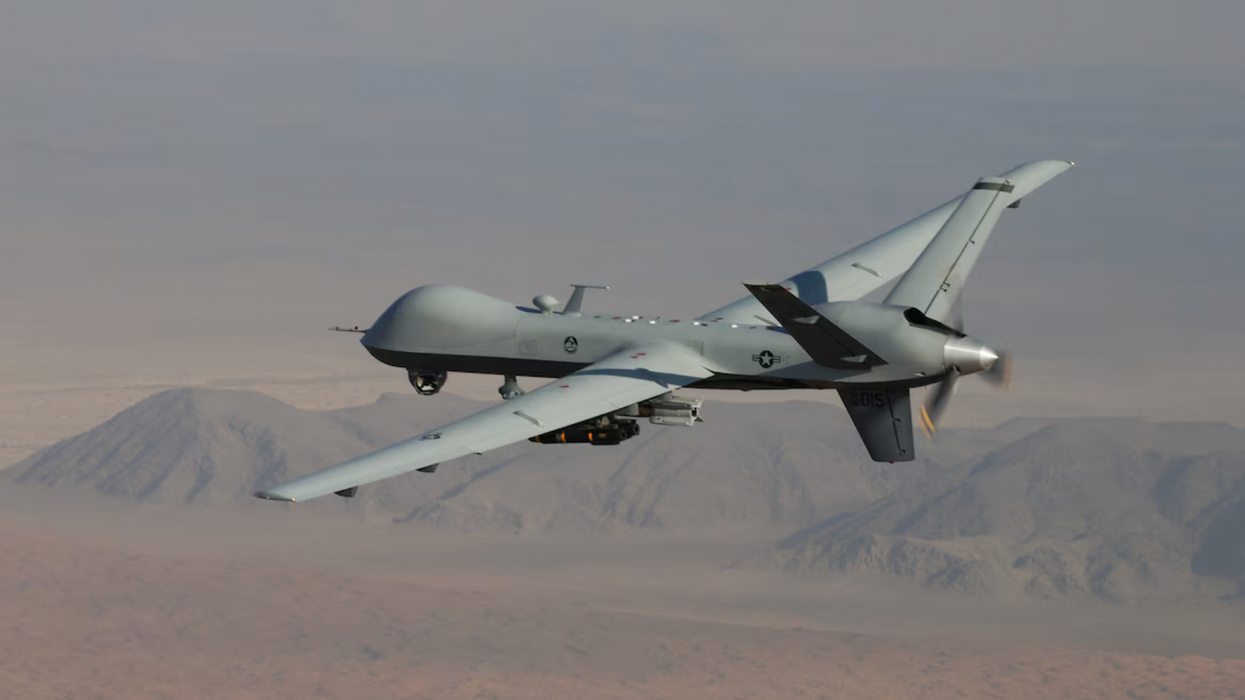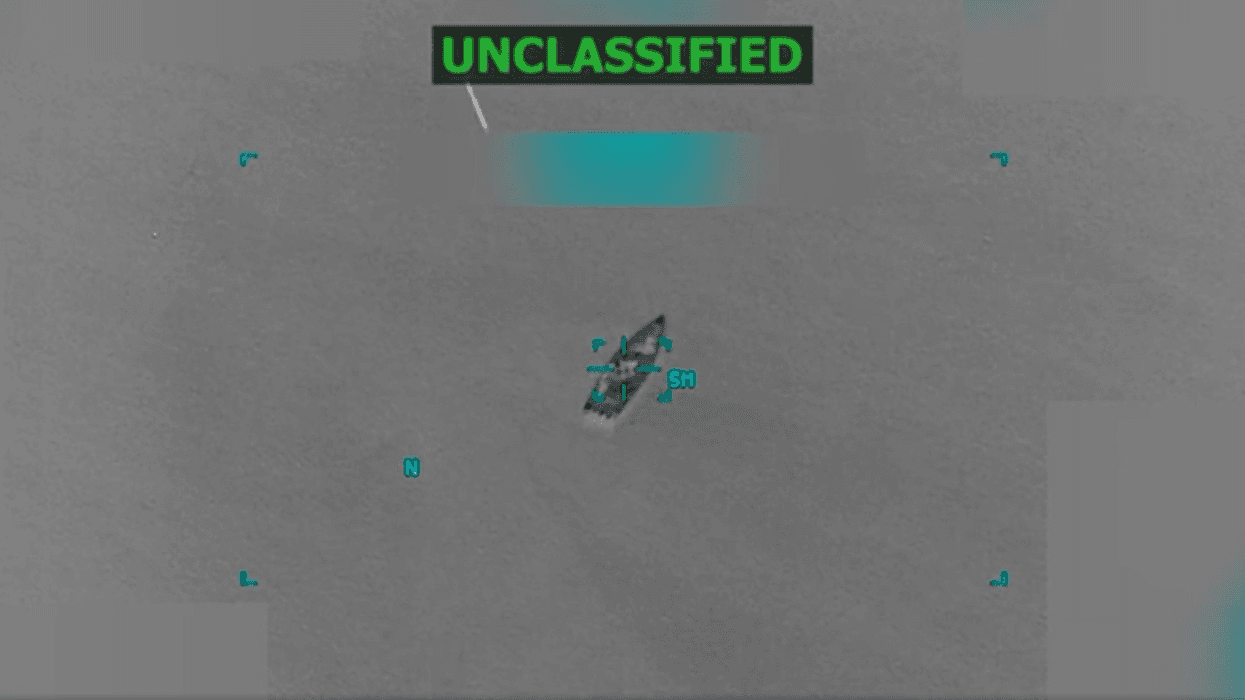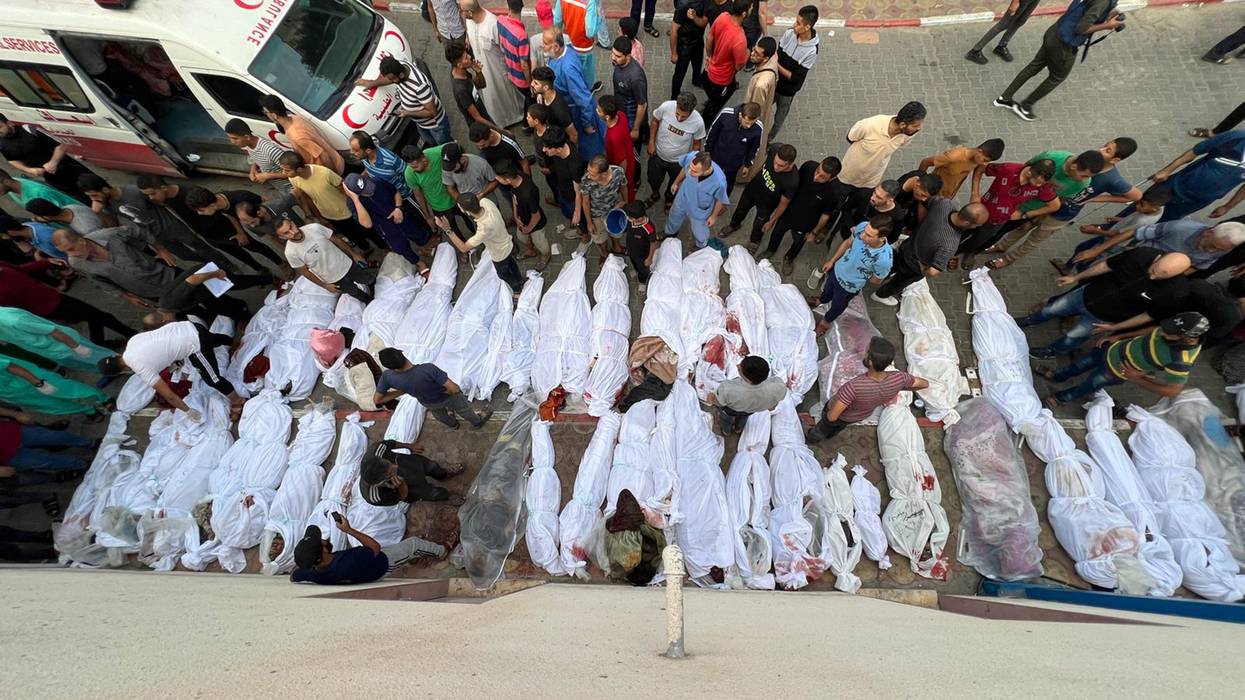At Least 12 Somali Civilians—Including 8 Children—Killed in Suspected US Airstrikes
The US has carried out nearly 100 strikes in Somalia this year alone, with scant coverage by the corporate media.
At least a dozen civilians—eight children, three women, and an elderly man—were killed in weekend bombings that local sources claimed were the latest of nearly 100 US airstrikes in the Horn of Africa nation this year alone.
The Somali Guardian reported that the strikes occurred near the southern Somali town of Jamame in the Lower Juba region. In addition to the 12 civilians killed, nine others were reportedly wounded in the attack.
While no one has claimed responsibility for the bombing, US Africa Command (AFRICOM) acknowledged carrying out weekend "airstrikes targeting al-Shabaab," an al-Qaeda-affiliated militant group, near Jamame.
“Specific details about units and assets will not be released to ensure continued operations security,” added AFRICOM—which earlier this year stopped sharing information about civilian harm caused by US attacks.
Somali Guardian reported that Danab, a US-trained Somali special forces unit, was also conducting operations in villages around Jamame. Danab often receives US air support while carrying out such missions.
The weekend strikes follow a Danab raid in Balcad district last week in which children were reportedly killed.
"Three were murdered including 2- and 3-year-olds," Somali activist Adan Abdulle said on Sunday. "This is not the first time that US or US-trained forces have murdered innocent civilians in cold blood. What makes these murders stand out is the callousness with which pressure was exerted on grieving families to keep quiet."
The latest strikes came amid a surge in US bombings targeting Somalia-based militants during US President Donald Trump's second term. Antiwar.com's Dave DeCamp has counted 96 US airstrikes on Somalia this year alone, based on AFRICOM data.
"President Trump has shattered the annual record for US airstrikes in Somalia, which he previously set at 63 during his first term in 2019," DeCamp noted Sunday. "For context, President [Joe] Biden launched a total of 51 airstrikes in Somalia throughout his four years in office, and President [Barack] Obama launched 48 over eight years."
Trump's record bombardment of Somalia has received almost no coverage in the US corporate media.
According to the UK-based watchdog Airwars, US forces have killed at least 92 and as many as 167 civilians in Somalia since 2007, when then-President George W. Bush ordered strikes on the country as part of the War on Terror.
The Costs of War Project at Brown University's Watson School for International and Public Affairs says that the open-ended US-led war has left more than 940,000 people dead, upward of 432,000 of them civilians, in at least seven countries, since shortly after the September 11, 2001 attacks on the United States.


